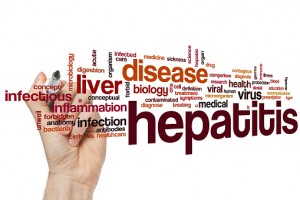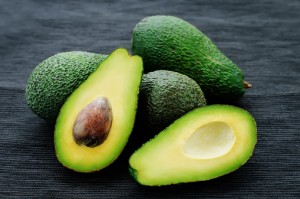Hepatitis liver inflammation reduced by specific immune cells
 Hepatitis liver inflammation may be reduced by specific immune cells. A new study from Belgium researchers reports that a specific immune cell type in the liver can dampen the immune response, reduce inflammation, and protect against liver damage.
Hepatitis liver inflammation may be reduced by specific immune cells. A new study from Belgium researchers reports that a specific immune cell type in the liver can dampen the immune response, reduce inflammation, and protect against liver damage.
Researchers at Vrije Universiteit Brussel, Belgium used mice to explore monocytes’ role – immune cells that help fight off infection – in combating liver inflammation. In the case of the mice, the researchers focused on trypanosome parasites because they often lead to liver inflammation.
There are two types of monocytes: Ly6c positive monocytes and Ly6c negative monocytes.
When the mice were infected with trypanosome parasites, initially more Ly6c positive monocytes travelled to the infected liver, but the Ly6c negative monocytes did follow as well.
The researchers found the Ly6c positive monocytes actually increased inflammation and promoted liver damage, while the Ly6c negative monocytes reduced the inflammation and prevented further liver damage. This goes to show that Ly6c negative monocytes can work as liver protection.
Researchers now say a means for preventing liver inflammation can result from changing Ly6c negative monocytes in the body. A therapy would either increase their number or function to protect the liver.
What is liver inflammation?
Liver inflammation is when the liver becomes damaged, or the cells become attacked by either a virus or lifestyle habits. Hepatitis refers to liver inflammation, and alcohol, fatty foods, and toxins can also result in liver inflammation.
There are a few types of hepatitis – A, B, C, D and E – and depending on which one you have, that determines severity and treatment options. Hepatitis A and B are most common and vaccines are readily available to prevent their onset.
If left untreated, liver inflammation can result in the liver not functioning properly and eventually lead to liver disease or liver failure.
Type of Hepatitis
Mode of Transmission
Incubation
period
Symptoms
Prevention
Hepatitis A
(HAV)
Contaminated food and water
15 to 50 days, average
28 days
Jaundice (yellowing of
the skin and whites of the eyes)
Fever
Loss of appetite
Fatigue
Dark urine
Joint pain
Abdominal pain
Diarrhea
Nausea
Vomiting
There is a safe HAV vaccine.
Hepatitis B
(HBV)
Infected blood, sex, and needles
From an infected mother to her newborn
60 to 150 days, average 90 days
There is a safe HBV vaccine.
Hepatitis C
(HCV)
Infected blood and needles
14 to 180 days, average 45 days
There is no vaccine.
Hepatitis D
(HDV)
Must already have hepatitis B
Infected blood, sex, and needles
From an infected mother to her newborn
Abdominal pain
Dark-colored urine
Fatigue
Jaundice
Joint pain
Loss of appetite
Nausea
Vomiting
Get the hepatitis B vaccine.
Hepatitis E
(HEV)
Contaminated water
Fever
Fatigue
Loss of appetite
Nausea
Vomiting
Abdominal pain
Jaundice
Dark urine
Clay-colored stool
Joint pain
There is no vaccine.
Ref: http://www.hepb.org/hepb/abc.htm, http://www.immunize.org/catg.d/p4075.pdf, http://www.cdc.gov/hepatitis/hev/hevfaq.htm, http://www.nlm.nih.gov/medlineplus/ency/article/000216.htm
Liver inflammation Causes and risk factors
As mentioned, liver inflammation is a form of hepatitis and so that can develop in numerous ways:
- Viral infections
- Alcoholic hepatitis
- Drug or chemical intoxication
- Bacteria infections which can disrupt the function of the liver
A liver inflammation that lasts for six months or less is considered acute. When it lasts longer than that, it becomes a chronic inflammation.
Risk factors for liver inflammation include:
- Alcohol abuse
- Consumption of contaminated water
- Contact with infected hepatitis items
- Exposure to blood or other bodily fluids
- Exposure to contaminated needles, tattoo needles
- Sexual contact with a person with hepatitis
- Travelling to countries with contaminated water or food and poor sanitation
Liver inflammation prevention tips
While this new discovery may take years to materialize, it does reveal stepping stones toward liver protection. In the meantime, there are natural means in preventing liver inflammation that you can start doing right now:
- Get immunization shots for both hepatitis A and B
- Wash your hands after using the bathroom and handling food
- Use condoms
- Avoid tap water in foreign countries
- Don’t share personal hygiene items
- Reduce your alcohol consumption
Following these tips can help you reduce your risk of developing hepatitis and promoting a healthy liver. Eating liver-friendly foods can help as well: leafy greens, citrus foods, and lean meats can promote liver function to ensure it continues to work at its best. Habits like smoking, eating too much red meat, and eating processed foods simply weigh the liver down, making it more difficult to function.
The liver is the only organ that can regenerate itself – but if your liver is sick and tired, it just can’t do this properly. Taking the right steps for liver protection is key to a healthier you.
Diabetes drug may combat fatty liver disease
New research has found a type 2 diabetes drug may be beneficial in combating fatty liver disease in some patients. The findings, from the University of Birmingham, suggest the diabetes drug can offer new treatment for patients with fatty liver disease – where there is currently no licensed treatment. Continue reading…
-
More Top Ten Healthiest Foods to Eat Now
My Problem with Top Ten Food Lists – Part 2 By Suzanne W. Dix
-
Tips On Avoiding Holiday Weight Gain
The holidays can be a time for get-toget
-
3 Steps To A Healthier Coffee Order
(BlackDoctor.org) — A latte here, a sweetened iced
-
The Best Way to Lose Weight, Facts and Tips You MUST Know
We all have our time controlled under a
-
Why Are you currently Starting A Fitness/ Exercise Plan? Keeping Your Aims In Mind
When we set objectives for the new year - this kind of as starting
-
Grocery Shopping For A Healthy Lifestyle 05
Its one of the most explosive things in your home - your grocery shopp
- DON'T MISS
- How To Shed Weight In 7 Days
- Book Review: Making the Cut
- Natural Fat Blocker Remedies For Weight Loss
- Ann Chery Has Done It
- Weight Loss Methods
- Weight Loss Diets-Top Four Diets That Are Proven Effective
- Fat Loss Secrets Focuses On Your Food Intake
- Healthy Weight Loss Advice - The Power of Goals
- Constant heartburn linked to stomach, esophageal cancer
- Weight Loss and Goals




